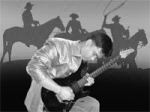Jhan Philip Co is a budding visualizer and architect from the Philippines. His visualization projects range from housing to resorts, from golf courses to office towers, and from shopping malls to mixed media. Jhan has completed many visualization works from UAE, Philippines, Kyrgyztan. He creatively used entourages to bring the viewers to the space he is trying to visualize. Recently he shared at
CGPinoy.org were he shared to us one of his latest work which was modeled in SketchUp and rendered in VrayMax.



 A special thanks to Jhan Philip for allowing SketchUp and Vray Resources to interview him:
Can you explain your workflow in including Google SketchUp in your visualization?
A special thanks to Jhan Philip for allowing SketchUp and Vray Resources to interview him:
Can you explain your workflow in including Google SketchUp in your visualization?
Whether I am designing or doing 3D visualization, I always sketch first before touching my computer. Aside from that, I make it a point to think about the process that I am about to go through. It is like planning ahead before doing anything, or let’s say it is like a battle plan. A lot of 3D visualizers nowadays skip this process because they thought that technology will take care of it. By this process, you will have a clear idea on how you will deal with the workload and for me this is one of the most crucial processes. Given the tools, techniques, skills and styles that you have, you can weigh if you will able to meet the deadline and the expectation of the client.
After the paper and pencil, now is the time to use SketchUp. There are usually two steps that I make in Sketchup. First is massing study and second is putting up details. Massing studies let me chose my camera angle well and how I tweak the camera as I go along while generating more details in my model. I make almost all my models in SketchUp, except for the entourage and some very complex geometry. By using SketchUp, I am putting myself into a more accurate interpretation of the project. Plug-ins and Ruby scripts make my modeling easier and the best thing about it is that most of them are free.
When modeling is done, I import my SKP files to 3ds Max. I put trees, furniture and other entourages with this software, except for the human figures which I usually do in post process. I find 3D human figures not so convincing. Final tweaking of the camera angle and model are done here also. I also experiment on the ambiance and mood too. Regardless of the design of the project, it is important for me to set the camera angle and mood to its best position and time so that it compliments to the model; thus making it look better. I use Vray as my render engine because it gives an excellent quality with short rendering time. I think this engine is best for architecture because it is simple to setup, flexible and very efficient. If the project is big and I foresee many revisions, I render couple of layers so that I can have better control.
Finally, post processing is made in Photoshop. Lens flare, adjustments of contrast ,and color balance are made here. Sometimes, if I find that a 3D entourage doesn’t look real, I just put cut-out images using Photoshop; such as trees, water shore, and people. Developing your skill in Photoshop will definitely make your work faster, and it will give you more flexibility especially when there are a lot of revisions.
What is your favorite project you’ve designed and visualise, and why is it your favorite?
Every project is different from one another that is why I consider them all special. However my favorite project is the one I did in Indonesia, PIK Mixed Used Development. I worked on it with Cadiz International Design. Cadiz gave enough freedom in designing the project and presented it the way that I envisioned it. The size of the project is perfect, not too big nor too small. This is when I felt that I gave the client what they really needed. Although it is not the best rendering that I did, I feel that the design and the presentation as a whole represents an image that portraits me as an architect.
~PIK Mixed-used Development, Indonesia by Jhan Philip Co aka "Chobs"
What or who inspires you in visualization?
Ronen Bekerman and
Peter Guthrie are some of the people that I inspire in my 3D Visualization. Scott Lockard also inspires me with his works in mixing the traditional and 3D rendering. A lot of artists and photographers inspire me with their works because they usually look at things in a different way and translate it into something beautiful.
Do you have any special advise to other artists?
I always believe that the basic principles of art can’t be replaced by technology. The artistic flare of a person doesn’t come from any software or any technological tools. These are just tools that will aid us and should not restrict us in our vision. Keeping an open mind and widening our imagination will help us to be a better artist and 3D Visualizers.
Thank you very much Jhan!
For more information abour Jhan and his work visit:
http://shownd.com/jhanphillipco
Nomeradona

 This tutorial has been shared to us by Arch.Arnel Canaleja of Eastern Visayas State University Tacloban City.
This tutorial has been shared to us by Arch.Arnel Canaleja of Eastern Visayas State University Tacloban City.